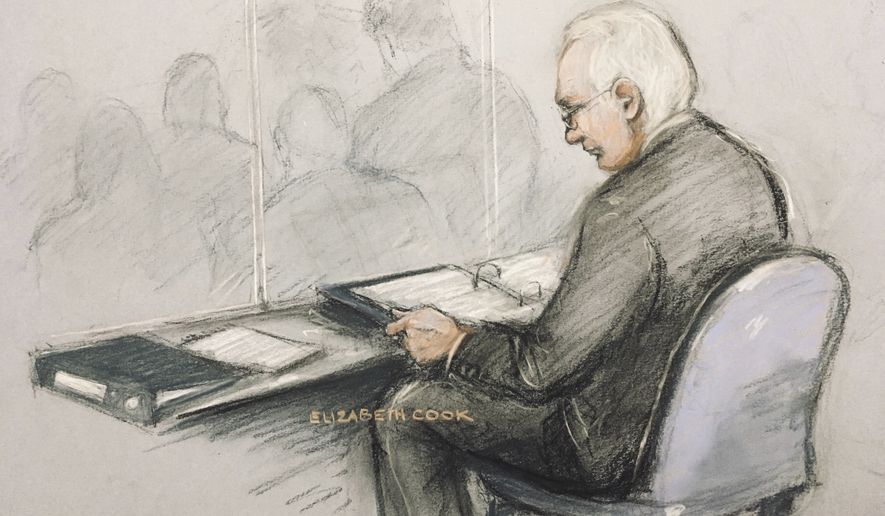Lawyers for jailed WikiLeaks publisher Julian Assange plan to push once more on Monday to have his extradition trial postponed because of the ongoing novel coronavirus pandemic.
WikiLeaks said Friday that Assange’s attorneys will ask a London court to delay his extradition proceedings due to restrictions imposed as a result of the coronavirus outbreak.
“Assange’s lawyers will argue that they have not had full and unfettered access to their client. The onset of the coronavirus crisis has reduced that already restricted access to unacceptably low levels,” WikiLeaks said in a statement.
Assange, an Australian, has been jailed in London for a year in connection with charges brought against him by the U.S. Department of Justice involving his WikiLeaks website.
The Justice Department has accused Assange of violating the Espionage Act by soliciting, receiving and releasing classified material and is seeking his extradition from the U.K.
Preliminary hearings were briefly held in late February at Westminster Magistrates Court in London to consider the U.S. extradition request, and proceedings are currently scheduled to resume on May 18.
Assange’s lawyers previously asked the court to delay the trial due to the coronavirus outbreak, arguing that it was limiting their access to the WikiLeaks publisher and would likely require witnesses to testify by video link. But that request was denied by District Judge Vanessa Baraitser on April 7, who said at the time that it would be premature to postpone the hearings at that point.
“This is an unpredictable situation, but I cannot assume courts won’t be operating normally then,” she reportedly said at the time. “With this in mind, it is my current intention to hear as much of this case as possible in May.”
Joseph Farrell, an acquaintance of Assange and “WikiLeaks ambassador,” argued that it is now clear that the extradition proceedings cannot proceed next month as planned.
“Julian’s lawyers cannot prepare adequately, witnesses will not be able to travel, and journalists and the public will not have free, adequate and safe access to the proceedings. Justice will neither be done, nor seen to be done,” he said in a statement.
Assange faces criminal charges related to classified military and diplomatic documents published by his website in 2010. He faces potentially more than 100 years in federal prison if put on trial in the U.S. and convicted of all counts.
• Andrew Blake can be reached at ablake@washingtontimes.com.




Please read our comment policy before commenting.